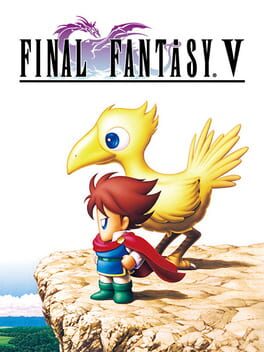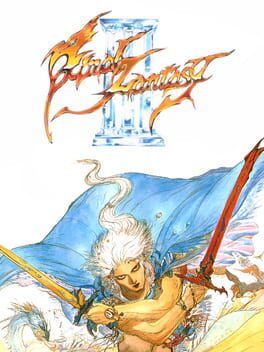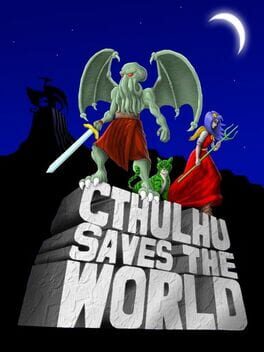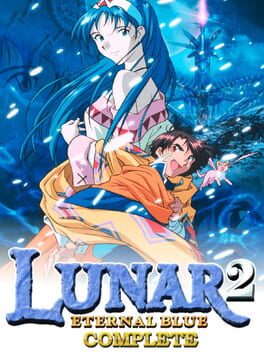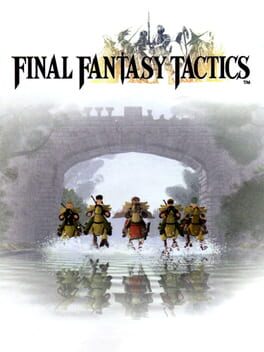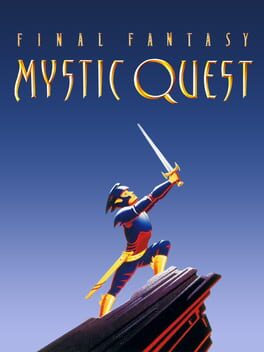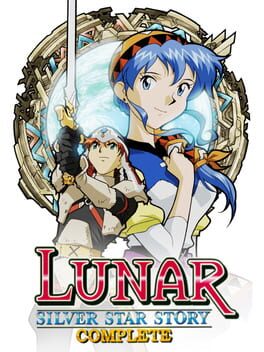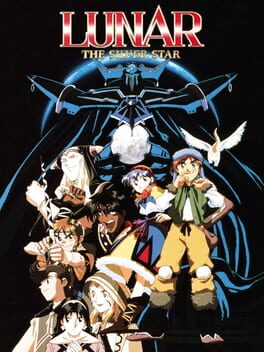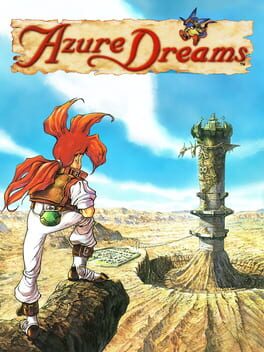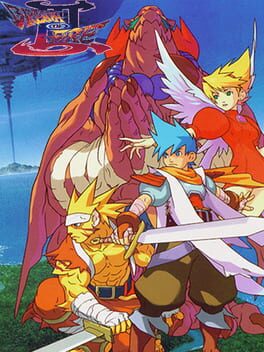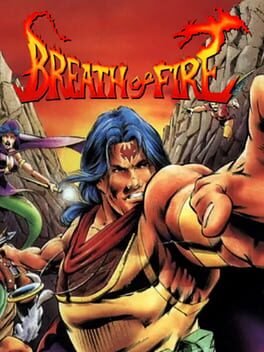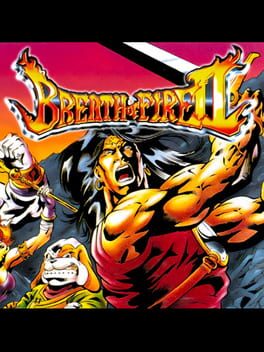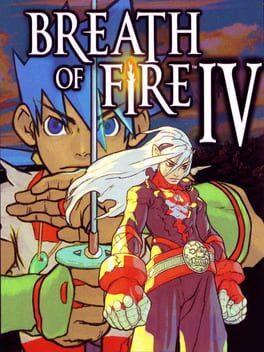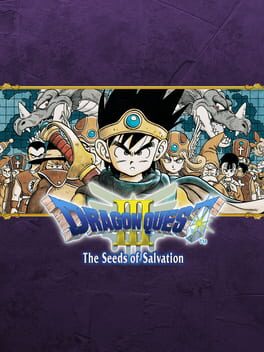iyellatcloud
1992
TL; DR - clears throat FINAL FANTASY V IS SO F-ING AWESOME THAT IT MAKES MY DICK ROCK HARD
I have to preface my musings by making the distinction between 'puzzle'-style gameplay and 'playground'-style gameplay in RPGs. FFVII is a typical playground-style RPG: the materia system is very flexible and customizable, so you can feel free to express yourself, build your characters in any way you like, and take any number of creative approaches to combat. FFIV, on the other hand, is a typical puzzle-style RPG: it often changes around your party composition and throws different challenges at you, often geared towards forcing you to make clever use of the resources and tools you have at that particular time with that particular party.
Time for my hot take: FFV is a better playground RPG than FFVII and a better puzzle RPG than FFIV. While FFVII does afford much more customization, it's also very easy which means you never really get incentivized to really explore the materia system and the varying combat options beyond spamming attacks/limits and healing when needed. FFV, on the other hand, is just tough enough to push you to explore the vast network of jobs and job skills to find combinations that work on that one boss.
The 'puzzle' aspect of the game comes from limited-job challenges like the Four Job Fiesta (let an RNG pick 4 of the 20 jobs which you have to limit yourself to over the course of a run). While this wasn't exactly what the devs had in mind, the fact that you can complete the game with any combination of four jobs (yes, even four Berserkers!) is a testament to how well balanced the game is. Playing the game with different job combinations each time forces you to come up with ever more creative solutions (no healer? Just equip flame rings and nuke yourself with Firaga!) to the puzzles the game presents, and unlike FFIV, the solution to the puzzle is different every single time you play. The sheer replayability and depth of the job system is what makes this my favorite game.
Run count: 51 and still not bored
I have to preface my musings by making the distinction between 'puzzle'-style gameplay and 'playground'-style gameplay in RPGs. FFVII is a typical playground-style RPG: the materia system is very flexible and customizable, so you can feel free to express yourself, build your characters in any way you like, and take any number of creative approaches to combat. FFIV, on the other hand, is a typical puzzle-style RPG: it often changes around your party composition and throws different challenges at you, often geared towards forcing you to make clever use of the resources and tools you have at that particular time with that particular party.
Time for my hot take: FFV is a better playground RPG than FFVII and a better puzzle RPG than FFIV. While FFVII does afford much more customization, it's also very easy which means you never really get incentivized to really explore the materia system and the varying combat options beyond spamming attacks/limits and healing when needed. FFV, on the other hand, is just tough enough to push you to explore the vast network of jobs and job skills to find combinations that work on that one boss.
The 'puzzle' aspect of the game comes from limited-job challenges like the Four Job Fiesta (let an RNG pick 4 of the 20 jobs which you have to limit yourself to over the course of a run). While this wasn't exactly what the devs had in mind, the fact that you can complete the game with any combination of four jobs (yes, even four Berserkers!) is a testament to how well balanced the game is. Playing the game with different job combinations each time forces you to come up with ever more creative solutions (no healer? Just equip flame rings and nuke yourself with Firaga!) to the puzzles the game presents, and unlike FFIV, the solution to the puzzle is different every single time you play. The sheer replayability and depth of the job system is what makes this my favorite game.
Run count: 51 and still not bored
1990
TL;DR - FFIII to FFV is like Street Fighter to Street Fighter 2.
FFV is my favorite video game and I love job systems in general so I went into this game expecting to love it. I didn't.
Where to start? Enough has been said about the brutal difficulty curve and how ridiculously unforgiving the final sequence of dungeons are - I broke my no savestate rule for that shit - but I think my problem with this game goes deeper than that: it simply isn't a good job-system game at all.
Firstly, there are so many jobs but only a handful of them are of any consequence. So many jobs you unlock later in the game are simply strictly-better versions of older jobs which means even though you have more than 20 jobs available, by the endgame you have reason to use maybe 4-5.
More damningly, the game utterly misses the point of a job system (flexibility, customizability, creativity) by railroading you into extremely specific jobs for specific dungeons/bosses. One simple example: there's a cave where all enemies respond to physical attacks by duplicating themselves and then swarm you to death. An NPC tells you that if you attack them as a dark knight they don't split. So you use dark knights like the game tells you like a good boy and you're fine.
What if you decide to try to be creative? You could try using magic against the enemies...but the cave is one of the longest dungeons in the game and you won't have enough spell charges to get through (ethers aren't a thing here). You could try using the Master's buildup ability to oneshot them before they duplicate... but using that ability reduces his defence to zero and he will get oneshot. You could use geomancers who can cast spells for free... except the geomancer's ability in that cave is absolutely terrible and has a very high backfire rate. It's as if the developers went out of their way to make sure you wouldn't find any other way around playing the game exactly as they want you to.
And the thing is, if the game actually approached it like a puzzle - leaving you to try to figure out which of the many jobs you have would be the correct solution to a dungeon/boss, then it would be somewhat satisfying. But it's not; it's just an NPC telling you straight up to "use dark knights!" or "use dragoons!" and woe betide you if you try to do anything differently.
Now that I think about it, you can ignore the TL;DR above. If FFV is Street Fighter 2, FFIII is Shaq Fu.
FFV is my favorite video game and I love job systems in general so I went into this game expecting to love it. I didn't.
Where to start? Enough has been said about the brutal difficulty curve and how ridiculously unforgiving the final sequence of dungeons are - I broke my no savestate rule for that shit - but I think my problem with this game goes deeper than that: it simply isn't a good job-system game at all.
Firstly, there are so many jobs but only a handful of them are of any consequence. So many jobs you unlock later in the game are simply strictly-better versions of older jobs which means even though you have more than 20 jobs available, by the endgame you have reason to use maybe 4-5.
More damningly, the game utterly misses the point of a job system (flexibility, customizability, creativity) by railroading you into extremely specific jobs for specific dungeons/bosses. One simple example: there's a cave where all enemies respond to physical attacks by duplicating themselves and then swarm you to death. An NPC tells you that if you attack them as a dark knight they don't split. So you use dark knights like the game tells you like a good boy and you're fine.
What if you decide to try to be creative? You could try using magic against the enemies...but the cave is one of the longest dungeons in the game and you won't have enough spell charges to get through (ethers aren't a thing here). You could try using the Master's buildup ability to oneshot them before they duplicate... but using that ability reduces his defence to zero and he will get oneshot. You could use geomancers who can cast spells for free... except the geomancer's ability in that cave is absolutely terrible and has a very high backfire rate. It's as if the developers went out of their way to make sure you wouldn't find any other way around playing the game exactly as they want you to.
And the thing is, if the game actually approached it like a puzzle - leaving you to try to figure out which of the many jobs you have would be the correct solution to a dungeon/boss, then it would be somewhat satisfying. But it's not; it's just an NPC telling you straight up to "use dark knights!" or "use dragoons!" and woe betide you if you try to do anything differently.
Now that I think about it, you can ignore the TL;DR above. If FFV is Street Fighter 2, FFIII is Shaq Fu.
(Updated review after completing 'Cthulhu's Angels' mode)
Even if you can get past the slightly amateurish graphics (and I can), there are a couple of significant flaws with the game. Firstly, the dungeon design is annoying, being convoluted and labyrinthe for the sake of being convoluted and labyrinthe. Secondly, the humor is a bit hit and miss. There are some truly witty touches and some great little references and shoutouts to other media, but there's plenty of dross as well. The humor smacks a bit of throwing whatever at the wall and seeing what sticks - there's plenty to smile at on the wall, but a heap of stuff on the floor around it.
What elevates this game for me is the fact that the devs made a love letter to old-school RPGs but also included plenty of well-considered tweaks to the traditional formula to improve the core experience. The ability to save anywhere and control the random encounter rate after clearing a certain number of battles in a dungeon are welcome, but it's the combat mechanics that really shine. The fact that HP is always fully restored after every battle lightens the resource management aspect, freeing players from the 'disease' of hoarding MP exclusively for cure spells, and the fact that the enemies get stronger with each successive round in battle incentivizes assertive and efficient play in order to win as quickly as possible.
I know it's not for everyone, but anybody looking for an RPG made by RPG gamers for RPG gamers should definitely give this a spin. It's the best $1 game I've ever played, and Rl'yeh great fun. I'll see myself out.
Even if you can get past the slightly amateurish graphics (and I can), there are a couple of significant flaws with the game. Firstly, the dungeon design is annoying, being convoluted and labyrinthe for the sake of being convoluted and labyrinthe. Secondly, the humor is a bit hit and miss. There are some truly witty touches and some great little references and shoutouts to other media, but there's plenty of dross as well. The humor smacks a bit of throwing whatever at the wall and seeing what sticks - there's plenty to smile at on the wall, but a heap of stuff on the floor around it.
What elevates this game for me is the fact that the devs made a love letter to old-school RPGs but also included plenty of well-considered tweaks to the traditional formula to improve the core experience. The ability to save anywhere and control the random encounter rate after clearing a certain number of battles in a dungeon are welcome, but it's the combat mechanics that really shine. The fact that HP is always fully restored after every battle lightens the resource management aspect, freeing players from the 'disease' of hoarding MP exclusively for cure spells, and the fact that the enemies get stronger with each successive round in battle incentivizes assertive and efficient play in order to win as quickly as possible.
I know it's not for everyone, but anybody looking for an RPG made by RPG gamers for RPG gamers should definitely give this a spin. It's the best $1 game I've ever played, and Rl'yeh great fun. I'll see myself out.
This is one of my favorite games to replay and I can see myself going back to it again and again without getting bored, but equally, whenever I go back to it its flaws stand out clearly to me. Two major issues in particular:
- FFV is my favorite game of all time (thanks largely to its superlative take on the job system), and the job system here is possibly even better, with tons more depth and customization. But the more I play this game the more I realize that a great job system is only half the battle: the game's difficulty curve has to be carefully curated in order to make tinkering with your jobs feel rewarding. FFV did a much better job of that than this game, which had a backwards difficulty curve with strange spikes. I think the main issue is that with a few exceptions, the enemies in this game are all human and therefore play by the same rules as you (i.e. they have primary classes, secondary skillsets, movement abilities, reaction abilities and passive abilities). But rather than having coherent builds, their ability sets seem to be determined at random. It isn't noticeable at the beginning, but by the endgame you will have crazy focused builds like teleporting wizards who evade 97% of physical attacks, and barehanded ninjas who can yell at themselves to go faster, and you'll be facing mages who jump on you for pitiful damage, or dragoons (lowest magic stat in the game) who waste their turns healing for single-digit HP instead of attacking you.
- The story is probably the best of any JRPG I've played. Or at least, I realized that it was the best after I read a plot analysis online, because the translation was utter steaming garbage. There are technically worse translations, but they tended to be early JRPGs with tropey stories you could get the gist of anyway; this web of political intrigue and double and triple-crossing deserved better. I honestly think any English-speaker with a Japanese dictionary could have done a better job - from how unwieldy a lot of the dialogue was, it seems almost like it was translated by one guy with a Japanese-English dictionary with no knowledge of either language.
Despite the two issues above, I would say that this is actually one of the RPGs I've played that comes closest to a 10/10 in both story and game mechanics. It is well worth playing and replaying.
- FFV is my favorite game of all time (thanks largely to its superlative take on the job system), and the job system here is possibly even better, with tons more depth and customization. But the more I play this game the more I realize that a great job system is only half the battle: the game's difficulty curve has to be carefully curated in order to make tinkering with your jobs feel rewarding. FFV did a much better job of that than this game, which had a backwards difficulty curve with strange spikes. I think the main issue is that with a few exceptions, the enemies in this game are all human and therefore play by the same rules as you (i.e. they have primary classes, secondary skillsets, movement abilities, reaction abilities and passive abilities). But rather than having coherent builds, their ability sets seem to be determined at random. It isn't noticeable at the beginning, but by the endgame you will have crazy focused builds like teleporting wizards who evade 97% of physical attacks, and barehanded ninjas who can yell at themselves to go faster, and you'll be facing mages who jump on you for pitiful damage, or dragoons (lowest magic stat in the game) who waste their turns healing for single-digit HP instead of attacking you.
- The story is probably the best of any JRPG I've played. Or at least, I realized that it was the best after I read a plot analysis online, because the translation was utter steaming garbage. There are technically worse translations, but they tended to be early JRPGs with tropey stories you could get the gist of anyway; this web of political intrigue and double and triple-crossing deserved better. I honestly think any English-speaker with a Japanese dictionary could have done a better job - from how unwieldy a lot of the dialogue was, it seems almost like it was translated by one guy with a Japanese-English dictionary with no knowledge of either language.
Despite the two issues above, I would say that this is actually one of the RPGs I've played that comes closest to a 10/10 in both story and game mechanics. It is well worth playing and replaying.
This game was supposed to be an introduction to RPGs for Western gamers: a "my first RPG" if you will. As such, it needed to be easy and intuitive... and unfortunately is neither of the two.
I had absolutely no idea what to make of any of the menus (the layout for the equipment screen in particular, made absolutely no sense). And while the game was extremely forgiving by simply bringing you back to the beginning of the battle if you died, it was also difficult, and difficult in the worst sense - RNG-based difficulty.
An example: your two-man party fights a party of three enemies, each capable of inflicting paralyze with their attacks. Since you need to use a turn healing paralysis, and there are three of them and two of you, it's very possible that they will stunlock you to death with minimal participation from you. So while the game was generous in letting you respawn infinitely, this seemed to add more to the frustration and tedium of replaying the same battle again and again with the same approach (the gameplay didn't allow for much strategy) and just waiting for the RNG to roll just right.
I will give it this though: the soundtrack was full of bangers, there were no random encounters, and the dungeons had some interesting puzzle elements.
I had absolutely no idea what to make of any of the menus (the layout for the equipment screen in particular, made absolutely no sense). And while the game was extremely forgiving by simply bringing you back to the beginning of the battle if you died, it was also difficult, and difficult in the worst sense - RNG-based difficulty.
An example: your two-man party fights a party of three enemies, each capable of inflicting paralyze with their attacks. Since you need to use a turn healing paralysis, and there are three of them and two of you, it's very possible that they will stunlock you to death with minimal participation from you. So while the game was generous in letting you respawn infinitely, this seemed to add more to the frustration and tedium of replaying the same battle again and again with the same approach (the gameplay didn't allow for much strategy) and just waiting for the RNG to roll just right.
I will give it this though: the soundtrack was full of bangers, there were no random encounters, and the dungeons had some interesting puzzle elements.
1997
It baffles me that nostalgia/hype is held up as one of the big reasons why FFVII is so well-liked. It wasn't anywhere near my first FF but is definitely one of the best in my opinion. The materia system was amazingly customizable and let you make the game as easy or as difficult as you wanted. The story was great, but the pacing was the MVP - everyone talks about the 'big reveals', but every new area you visited or every little bit you advanced the story, you would get a steady drip-drip-drip of small reveals that would keep you invested in the game and unable to turn it off. One of the best RPGs for me.
1997
This is a relatively forgiving roguelike in that it lets you keep your monsters and equipment between runs (as long as you survive). It's also good fun: the sheer number of treasures, monsters and traps mean that no level can ever be played on automatic. Just one example: your monster companion steps on a trap that teleports him to another part of the floor. Do you try to find the exit as fast as possible forgoing the exp and treasures on this floor, or hunt around for your companion and continue exploring the floor in your vulnerable state? The dungeon runs are great fun and on some occasions can become wonderfully tense. My small gripes with the gameplay lie in the lack of balance between monster companions (some are next to useless and others can make you virtually invincible) as well as some terribly unintuitive menu hopping (I lost count of how many times I accidentally healed a monster or cast a debuff on myself).
There is also a more traditional RPG town where you go in between dungeon runs to restock and socialize, and while it's a nice change of pace, it's probably the weaker half of the game because of how static the town is compared to the dungeons and how the content isn't all that meaningful beyond bragging rights of how big your harem becomes.
Many of its contemporaries far outstrip it in terms of scale, story, graphics, and amount of content. But I have a soft spot for simple, fun, gameplay, and Azure Dreams delivers it in spades.
There is also a more traditional RPG town where you go in between dungeon runs to restock and socialize, and while it's a nice change of pace, it's probably the weaker half of the game because of how static the town is compared to the dungeons and how the content isn't all that meaningful beyond bragging rights of how big your harem becomes.
Many of its contemporaries far outstrip it in terms of scale, story, graphics, and amount of content. But I have a soft spot for simple, fun, gameplay, and Azure Dreams delivers it in spades.
1997
This is lowkey one of the best RPGs I've played, period. The combat is good, the storyline is unique, and the game manages to nail a sense of exploration that many similar games just seem to miss. In my opinion, the game even handles some gameplay aspects (such as the dragon transformation mechanics and the minigames) better than its successor (BoF 4, an excellent game in its own right)! My only gripe would be how slow-paced the gameplay is and the lack of fast travel, but even that makes sense given that the game's storyline is a slow burn and isn't your standard urgent "the world ends in one week!!" fare.
1993
A mostly-serviceable RPG that has its moments, the best thing it did was establish the aesthetics, story beats and worldbuilding elements that later installments would refine. It's not bad but given how much better the latter entries are, I'd only recommend it to fans of old-school RPGs and fans of the series.
1994
This game's highs are really really high. The soundtrack is full of bangers, the characters are memorable and beautifully-designed, and the shamanization system is fantastic, essentially doubling your character roster by giving them alternate forms. The plot seems cliche now but was surprisingly dark especially considering it was made during an era pretty heavy on censorship.
It is hurt by the translation (the plot deserved a better script that could have given its poignant moments more gravitas), and its underuse of the shaman system. By that I mean that you can only bond with shamans at one location in the entire game, and going into low HP (or getting KO'ed) would knock you out of your alternate form which meant a lot of backtracking if you wanted to transform again.
There is a romhack which revises the translation and another which allows you to keep your shaman transformation at low HP (you still lose it if you get KOed). Applying both is probably the best way to experience the game and would probably bump its score up to 4 or even 4.5 stars.
It is hurt by the translation (the plot deserved a better script that could have given its poignant moments more gravitas), and its underuse of the shaman system. By that I mean that you can only bond with shamans at one location in the entire game, and going into low HP (or getting KO'ed) would knock you out of your alternate form which meant a lot of backtracking if you wanted to transform again.
There is a romhack which revises the translation and another which allows you to keep your shaman transformation at low HP (you still lose it if you get KOed). Applying both is probably the best way to experience the game and would probably bump its score up to 4 or even 4.5 stars.
2000
My score for this game is probably a reflection of how subjective tastes can be. There is so much to like about this, but somehow as a whole the game didn't blow me away; I found that while it improved on the previous games in many ways, it was also a noticeable downgrade from BoF 3 in others.
The good:
- The spritework is absolutely stunning.
- The combat was engaging and deep, with the combo system and character switching adding up to what are probably the best combat mechanics of the series.
- The world is vast and colorful.
- The story was effective and haunting, and kept me up at night thinking about it sometimes.
The bad:
- The 3D models didn't age well. Seeing the beautiful character sprites sharing the screen with a 3D-rendered dragon that looks like a giant gummy worm is jarring.
- The music feels slightly bland especially compared to the unique smooth jazz feel of BoF 3.
- The dragon transformation system is a vast downgrade from its predecessor (or even the shamans from BoF 2).
- The lack of an overworld screen made the world seem smaller than it really was. Also, the camera angles made some areas a real chore to navigate.
- There was a lot of padding, especially towards the end. The last 10 hours or so has barely anything happen storyline-wise: you're trying to get to a city, and you just keep running into dungeons along the way that have no reason to exist other than padding the game time.
My rather lengthy list of gripes above makes it seem like I dislike the game, but it had so many cool set-pieces and just plain hard-hitting storyline moments, and the meat of the game (the combat) was very solidly done. Fine margins and matters of subjective taste made this a 'very good' rather than 'excellent' game for me, but I can definitely respect that many consider the best in the series, and I do recommend it to any RPG fan.
The good:
- The spritework is absolutely stunning.
- The combat was engaging and deep, with the combo system and character switching adding up to what are probably the best combat mechanics of the series.
- The world is vast and colorful.
- The story was effective and haunting, and kept me up at night thinking about it sometimes.
The bad:
- The 3D models didn't age well. Seeing the beautiful character sprites sharing the screen with a 3D-rendered dragon that looks like a giant gummy worm is jarring.
- The music feels slightly bland especially compared to the unique smooth jazz feel of BoF 3.
- The dragon transformation system is a vast downgrade from its predecessor (or even the shamans from BoF 2).
- The lack of an overworld screen made the world seem smaller than it really was. Also, the camera angles made some areas a real chore to navigate.
- There was a lot of padding, especially towards the end. The last 10 hours or so has barely anything happen storyline-wise: you're trying to get to a city, and you just keep running into dungeons along the way that have no reason to exist other than padding the game time.
My rather lengthy list of gripes above makes it seem like I dislike the game, but it had so many cool set-pieces and just plain hard-hitting storyline moments, and the meat of the game (the combat) was very solidly done. Fine margins and matters of subjective taste made this a 'very good' rather than 'excellent' game for me, but I can definitely respect that many consider the best in the series, and I do recommend it to any RPG fan.
This is my favorite 8-bit era RPG by far and possibly my favorite Dragon Quest game. Its class-change system has few classes but contains a deceptive amount of depth and replayability, and the game is streamlined enough for me to want to actually replay it (sideways glance at DQVII). Extra credit for expertly straddling the line between challenging and unfair: something few other games in the series got right in my opinion.
